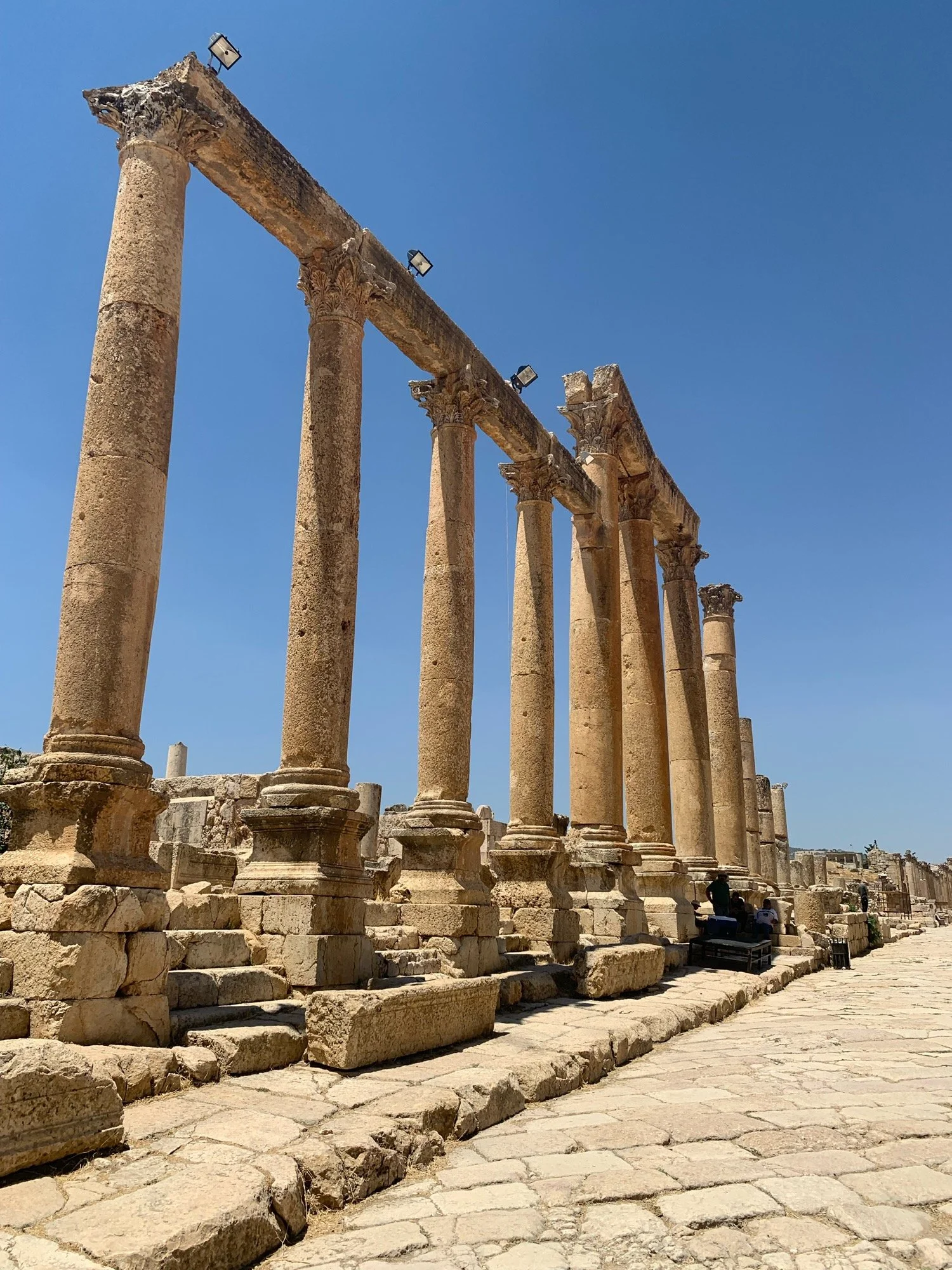Readings for today: Jeremiah 49-50
I have stood on the mound in Rabbath-Ammon. I have seen the ruins of Edom. I have spoken to the descendants of Kedar. It’s a powerful experience to see the Bible come to life. To connect the dots between what we read in Jeremiah today and real life events. The archeological “tel” in the modern day city of Amman, Jordan dates back to the Bronze Age (1800 BCE). Walking among the ruins, one can see evidence of the Romans, Byzantines, and Umayyads. As they have excavated certain portions, they found a tomb dating to the middle Bronze Age that held some pottery. They also found evidence of the ancient capital of the nation of Ammon. In fact, the oldest known inscription of the Ammonite language was discovered here. The museum that was built on site holds some of the oldest artifacts ever unearthed. It’s really something to behold.
The ruins of Edom are just as powerful. I took a tour of Wadi Rum and saw the places where ancient caravans would stop to rest and water their camels before continuing north. It’s also the wilderness where Israel wandered after coming up out of the Red Sea. It’s desolate. Empty. Dangerous. It’s easy to see why Israel spent so much time complaining and longing for Egypt. There’s simply nothing out there. Petra was a marvel, of course. Though not Edomite, it was a major city in the region built by the Nabateans. One also encounters the Bedouins in this region of the world. Descendants of nomadic tribes like the Kedarites referenced in today’s reading. They largely maintain the same way of life their ancestors did.
What’s my takeaway from the journey? How does it relate to today’s reading? Jeremiah makes it clear that kingdoms come and go. Nations rise and fall. As powerful as one county may be at a particular moment, there is already another rising that will take it’s place. This was true in the ancient world and it’s just as true today. Only the Kingdom of God lasts forever. Only the Triune God reigns supreme. He has no rival. He has no equal. There are none who can match his power. I love how Psalm 2 puts it, “Why do the nations rage and the peoples plot in vain? The kings of the earth set themselves, and the rulers take counsel together, against the Lord and against his Anointed, saying, “Let us burst their bonds apart and cast away their cords from us.” He who sits in the heavens laughs; the Lord holds them in derision. Then he will speak to them in his wrath, and terrify them in his fury, saying, “As for me, I have set my King on Zion, my holy hill.” (Psalm 2:1-6)
As believers in Jesus Christ, we place our trust in the King of kings and Lord of lords. While we may love and serve our earthly kingdoms, we do not give them our final or ultimate allegiance. We know they will one day fall just as surely as Ammon and Edom and Damascus. We must learn from those who have gone before us and whose voices cry out to us from the ruins they left behind. They spent their lives building great civilizations and monuments only to watch them disappear into the sands of the desert. Will we do the same? Or will we spend our lives building for a different kind of kingdom? A kingdom that never ends?
Readings for tomorrow: Jeremiah 51, Psalms 137
